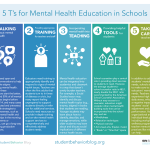Table of contents
Instilling Responsibility and Accountability in Your Children
No matter what age your children are, teaching them about responsibility and accountability is a key skill for their future success. Life is full of inevitable challenges and setbacks, so teaching children about accountability and responsibility helps them to manage those issues in a more effective way. It gives them the opportunity to learn, develop self-awareness and makes them more capable of managing difficult situations successfully.
Having the skills to manage responsibility and accountability is an invaluable life skill that provides the foundation required to help them thrive in both work and personal life. It encourages them to be independent, self-motivated and ultimately helps foster an understanding that decisions have consequences. It’s not only a skill that should be taught to children but also to adults, ensuring that everyone can achieve their goals and lead more successful lives.
Developing Responsibility and Accountability
There are multiple ways of developing responsibility and accountability in your children. Here are a few of the most important:
- Teach them decision making skills: Teaching your children the basics of how to critically evaluate the pros and cons of a decision can help them understand the best approach to take.
- Encourage problem-solving: Providing your children with the opportunity to problem-solve, whether small and everyday situations or larger and more complex ones, helps to develop a creative and adaptable approach.
- Lead by example: Showing your children how to deal with personal responsibility and accountability by leading by example will help them to better understand their own actions and responsibilities.
- Open communication: Encouraging open communication between adults and children is incredibly important. Make sure that they know they are allowed to talk to you about anything and help them understand why they are required to be responsible and accountable in certain circumstances.
Accountability in Young Children
Understanding why accountability is important in adults can be quite easy, but how do you explain it to young children? Teaching young children about responsibility and accountability is all about teaching them communication.
It’s important to encourage them to discuss their feelings and help them understand that their actions have consequences. Teaching accountability can be as simple as introducing rewards and incentives for completing tasks. This allows them to be actively responsible for their own behaviour and want to develop further personal accountability.
It can be difficult for young children to understand why something needs to be done or why a certain rule is in place, but it’s important to always remain consistent with your approach to ensure they understand the meanings behind any decisions.
The Benefits of Developing Responsibility and Accountability
Developing responsibility and accountability in children allows them to make decisions independently and allows them to take ownership of their own actions and behaviour.
It helps to foster a better understanding of the consequences of their actions and enables them to take responsibility for the outcomes of their decisions and actions. Being able to recognise mistakes and learn from them is an amazing life skill that will help them to become more successful in their lives.
Developing responsibility and accountability also helps children to become more confident in discussing difficult topics and understand that their opinions matter. It boosts their self-awareness and understanding of the importance of eye contact and appropriate body language and encourages them to take ownership of their own success and mistakes.
Final Thoughts
It’s important to recognise the value in developing responsibility and accountability in our children. It’s not only beneficial to their future success, but it helps to establish positive behaviour in the current moment.
Parents should ensure that their children are aware of their own personal responsibilities and that there is a mutual understanding of the consequences for each decision. Lead by example and encourage communication throughout the whole process.
At the end of the day, responsibility and accountability are important life skills that should be championed and advocated to kids of all generations. It will help to prepare them for the future and encourage independence and self-confidence.
By teaching responsibility and accountability to both young children and adults, you can help shape a better and more successful future.







